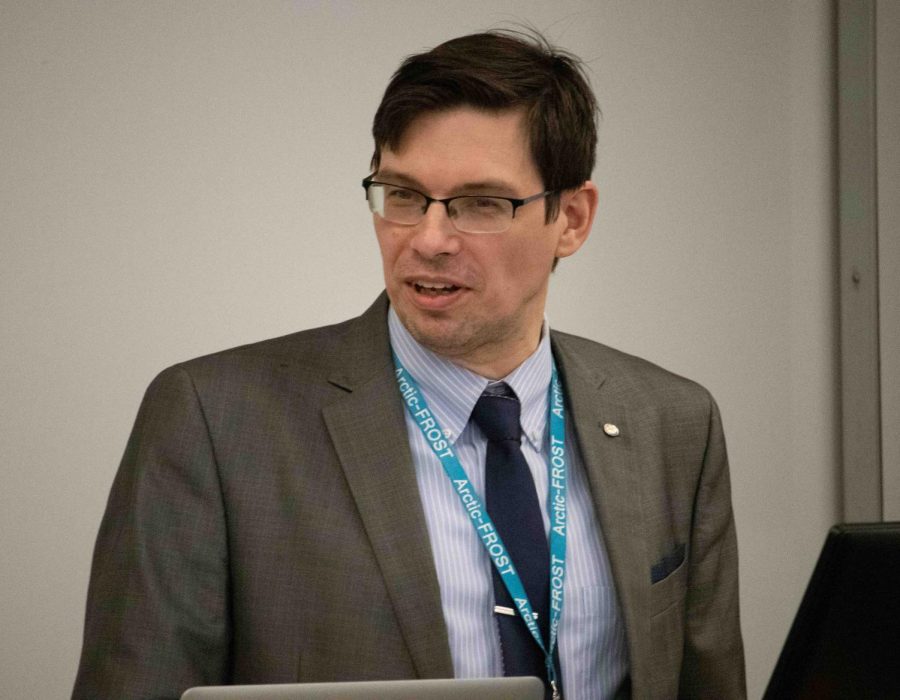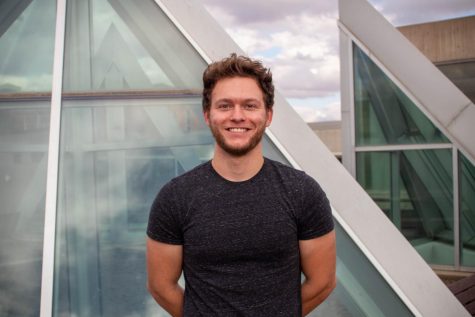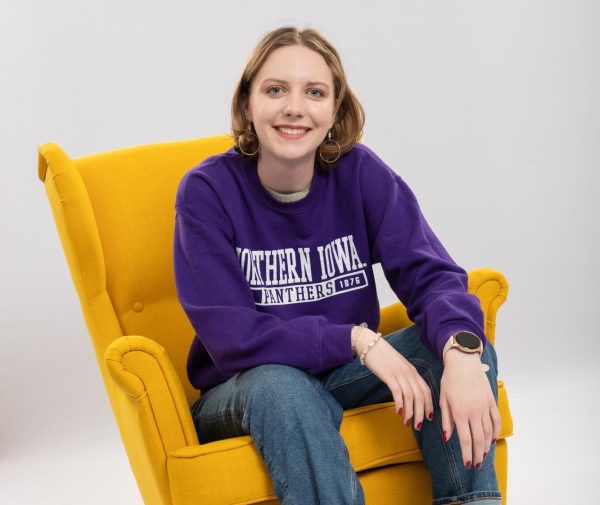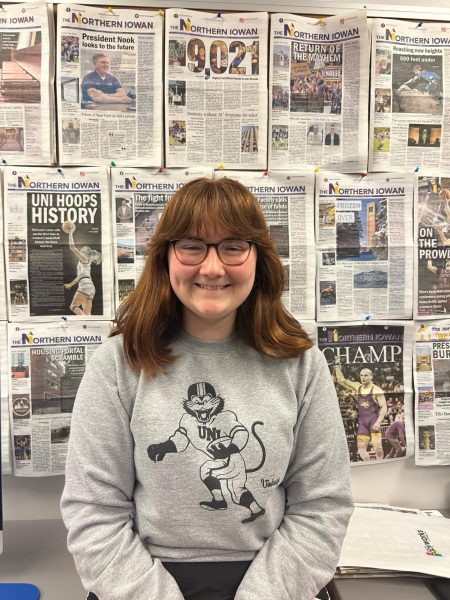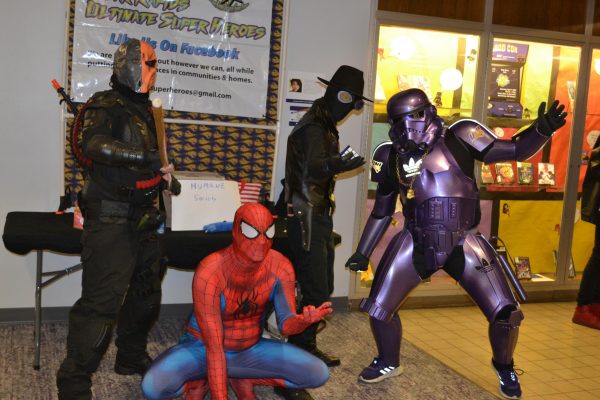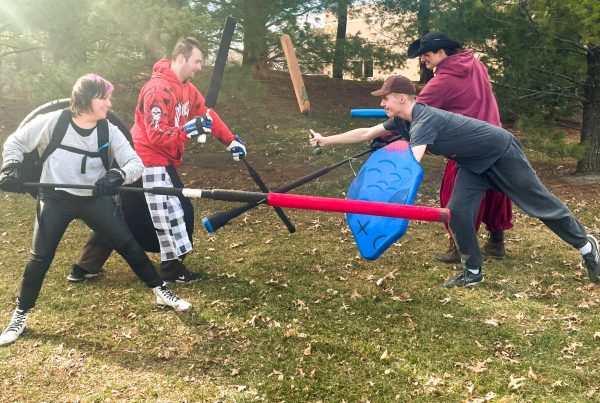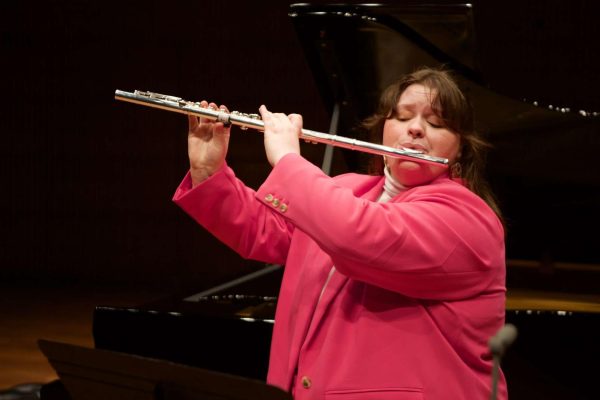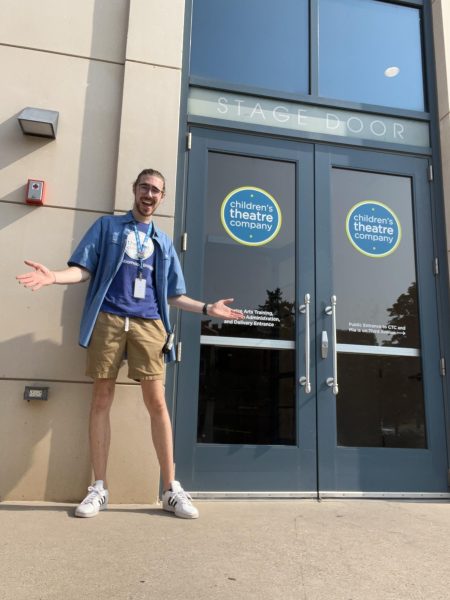UNI observes inaugural ‘Arctic Day’
Feb 3, 2020
Friday, Jan. 31 marked the inaugural “Arctic Day” on UNI’s campus as declared by the UNI ARCTICenter.
In honor of the inauguration of Arctic Day, as well as the launch of University of the Arctic (UArctic) on campus, the ARCTICenter held a launch and information session in Rod Library at 11 a.m., followed by a presentation titled “The Peoples of Frozen II: the Saami Culture in the Arctic” held in the Innovative Teaching and Technology Center (ITTC) at 3 p.m. The second session was presented by Tatiana Egorova, a Saami scholar and director of the Indigenous Peoples Office at the Barents Secretariat in Murmansk, Russia.
UNI’s ARCTICenter grew out of the Arctic Lab in 2011 and was established in 2015 by the Iowa Board of Regents. The center’s mission is to “develop collaboration among faculty, staff, and students who are engaged in research and educational activities pertaining to the Arctic, remote, and cold regions,” according to its website.
On Sept. 20, 2019, UNI’s ARCTICenter was elected a member of the UArctic, a network of nearly 200 universities, research institutes and other organizations dedicated to research and education in and about the North.
“We have an opportunity to start a tradition that I hope in the future will be picked up across the world,” said ARCTICenter Director Andrey Petrov. “Arctic Day in January will be something we all celebrate together.”
Friday’s morning session featured multiple speakers discussing the Arctic, UArctic opportunities for research and education and indigenous tribes in the United States.
Petrov began the session by giving a brief summary of the Arctic. He discussed the rapid environmental and social changes, the eight countries in the Arctic and the 30 that are interested in being part of the Arctic Council and the importance it has in developing solutions to combat climate change.
“Some people think of the Arctic as the last chance to understand and deal with dramatic climate and social changes,” Petrov said. “I think, for science, the Arctic represents a critical area of inquiry where we could focus on the most important challenges and the most diverse knowledge systems and find solutions that can be applicable to the rest of the world.”
UArctic President Lars Kullerud spoke at the session via Skype to give a summary of the organization, the state of their Arctic research and the multitude of thematic networks that foster issues-based cooperation with networks focused on responding to topical issues in the area.
“They cover all sorts of ideas,” Kullerud said. “They exist because researchers somewhere had the idea to create [a network]. If the members accept that idea to be worth becoming a group, then people from a few universities work together around it.”
The UArctic has various types of programs that facilitate student experiences, including their “north2north” mobility program, which provides opportunities to study in different parts of the North. Students can improve their knowledge on about Arctic people and issues by taking courses at another circumpolar institution.
“If you’re a student in Iowa and you’d like to visit the North, we have programs that can help you do that, including the north2north scholarship system,” Kullerud said. “I also know that students from the North would much likely want to go to you to study, so you should also find a way to join [north2north] and invite students to you.”
The Indigenous peoples of the Arctic was another big talking point of the day. The Arctic is a homeland for many Indigenous tribes and a space of Indigenous knowledge that has a strong sustainability element.
Mary Youngbear, registrar for the Meskwaki Cultural Center and Museum in Tama, Iowa, spoke about indigenous tribes in North America. She encouraged everyone in the audience to acknowledge the history of the over 500 North American tribes and take every opportunity they can to learn their history.
“Everywhere you go in this state, there’s a history of other tribes,” Youngbear said. “This land has all of their memories — all their ceremonies, all the songs, they’re still here.”
For those seeking more information about the department and student opportunities, the UNI ARCTICenter office is located in ITTC 348.

